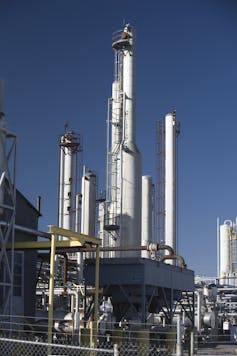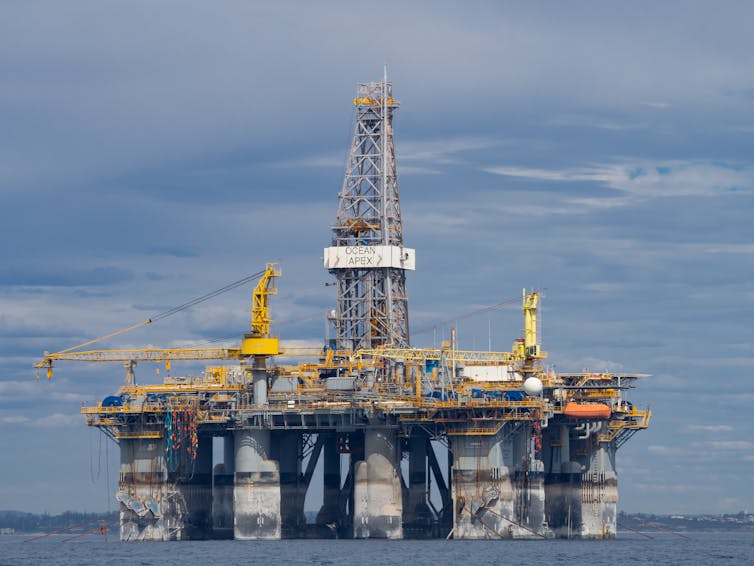By Diane Kraal*
Speaking on ABC’s Q&A, Nobel Prize-winning economist Joseph Stiglitz claimed Australia was “giving away its natural resources”, something he found “mind-boggling”.
He said that if Australia made the fossil fuel industry pay for the value of the resources it extracts and its fair share of taxes, “you wouldn’t have the problems that you have today”.
"If you made them pay for the value of the resources & their fair share of taxes, you wouldn't have the problems that you have today." #auspol@JosephEStiglitz, Nobel Prize-winning economist, on #QandA says the fact Australia gives away its natural resources is 'mind-boggling'. pic.twitter.com/CSJohXbLtt
— Australia Institute (@TheAusInstitute) August 13, 2024
Stiglitz appeared to be referring to our profits-based petroleum resource rent tax, also known as the “gas tax”.
Having formally researched and advised specialist forums on this issue for many years, I agree with him that yes – we are giving away our wealth, both to foreign countries and companies owned overseas.
It’s great to see an international heavyweight like Stiglitz pointing out some of the glaring issues with our system. To fix it, the federal government needs to get rid of its profit-based offshore gas tax altogether and revert to the royalties-based system we used to have.
How do we tax gas?
Australia’s petroleum resource rent tax, or gas tax, is a secondary taxation on offshore gas resources. It’s a tax on profits, that is to say, it’s only collected when gas companies’ incomes exceed their expenditures.

Australia now consistently ranks among the top liquefied natural gas exporters in the world. But our tax take from the industry has long been too low.
So low, in fact, it triggered a federal government review in 2017. Former treasury official Michael Callaghan headed up the review as an independent expert.
I recall being quizzed by Callaghan in early 2017 at my Monash office in Melbourne over my submission to the review, which advocated for major reform of existing gas tax concessions.
But at the same time in Canberra, gas industry executives were lobbying hard, insisting there be no change to gas taxing due to “sovereign risk”.
Callaghan ultimately tendered a report recommending tax design reforms. But the changes later implemented by the government were little more than window-dressing, for as the revenue table below shows, gas tax revenues are still too low.
Figures from 2018 show a sizeable gap between Australia’s gas tax revenue of about A$1.1 billion, and that of our nearest competitors. Qatar collected gas royalties that same year of more than $50 billion, and Norway’s special gas tax netted the country $19.5 billion.
It is obvious, even to dispassionate observers like Stiglitz, that Australia’s lacklustre gas tax legislation results in a gas industry that doesn’t pay its fair share for community-owned natural resources.
Why did we move away from royalties?
We used to tax the offshore gas industry under a system of federal royalties that were based on the market value of petroleum production.
The profits-based tax concept was developed by economists Ross Garnaut and Anthony Clunies Ross in the 1970s, for the oil industry in the newly independent Papua New Guinea.

Garnaut was economic advisor to the Hawke-Keating Government, and in 1983 advocated the repeal of federal royalties. The profits-based tax that replaced it was first applied to profits on Australian oil production in 1987, where it raised reasonable revenue.
But it was later applied to offshore gas production, which is less profitable than oil due to costly liquefaction, storage infrastructure, and specialised high-pressure gas transport requirements.
This characteristic low profitability of the gas industry delays the triggering of the gas tax. Companies can operate for years without paying it. In other words, Australia is not being paid for much of its “stock” of gas that is mainly sold for export.
A fair share of taxes
A return to federal royalties on offshore gas production would increase government revenues, and provide a fairer outcome for the community.
Some of us may recall the 2014 repeal of mining’s profits-based Minerals Resource Rent Tax, due to its low revenues. The government repealed the profits-based tax in 2019 for onshore gas, and could easily do the same for offshore gas.
Joseph Stiglitz’s observations on the way we tax our natural resources offer another opportunity for us to reflect. We are missing the opportunity to fairly tax things we can only extract once, to the detriment of our community.![]()
*Diane Kraal, Adjunct Senior Research Fellow, Business Law and Taxation Dept, Monash Business School, Monash University.
This article is republished from The Conversation under a Creative Commons license. Read the original article.
6 Comments
Nz will probably be boosting their profits, and subsequent Aus tax, before too long.
Of course, when all the fossil energy is gone, the digits (whether taxed, banked, invested or stored under a pillow) are worth?
Diddly-squat. )What will they be buying?)
She fails the Stiglitz test; he understand the Limits to Growth, she is still within the matrix.
The lucky country?
Australia’s resources are being stolen by foreign companies: Pauline Hanson | Alan Jones
Rudd's downfall: written in The Australian
In late April 2010 Kevin Rudd took two steps that in combination would bring him down: the postponement of the emissions trading scheme and the announcement of his government's intention to introduce a mining industry super profits tax.
On April 24 the paper reported that "a massive new tax", which mining executives would regard as a "thermo-nuclear option", was in prospect. On April 30 it reported on "the fury" of the miners and the savage likely reduction in their profits of what was called a "double tax". On May 3 it reported that Rudd intended to "milk the mining boom" with his $10 billion tax. On May 4 it reported that Rudd had been accused by the mining industry of not understanding "the real world" and that at least $9 billion had been wiped off the sharemarket value of mining companies. On May 5 it reported that Rudd was "locked in tense discussions" with mining executives while a further $7 billion of share value was wiped out. On May 6 it reported that in Perth Rudd had been involved in a "bare-knuckle brawl" with 30 of the nation's "most powerful executives" and that Rio Tinto had "shelved" a planned $11 billion investment. The paper's daily front-page coverage of the mining super profits tax continued remorselessly in this vein for the next six weeks. Finally, on June 17, it reported that mining companies wanted guarantees from the Australian government of the kind they required when operating in "developing and unstable countries".
Australia is making another critical mistake in growing it's population, they are diluting the effect natural resources have on increasing per capita wealth. If they where adding mining engineers in WA the country would be getting wealthier but instead they are adding Uber drivers in Sydney which makes the country poorer on average.
It looks likely to me they will let these opportunities slip through their fingers.
That this whole issue is seen only in terms of tax take of what the bulk carriers ship out, instead of the opportunity to grow the pie by processing to sustainably add value in Australia, is a bit disheartening.
It seems there's the undying reluctance to actually make something - and provide jobs, develop infrastructure, manage supply risks and all the other benefits that brings.
All just too hard and unglamorous to attract the attention of professional politicians, I guess, and endemic here, too.
We welcome your comments below. If you are not already registered, please register to comment
Remember we welcome robust, respectful and insightful debate. We don't welcome abusive or defamatory comments and will de-register those repeatedly making such comments. Our current comment policy is here.